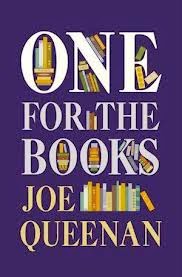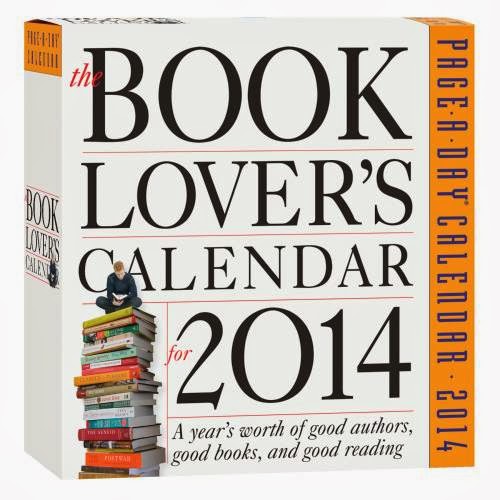Situation:
You crave the perfect title to fit your reading mood, whether a thriller, romance, mystery, coming of age, biography, or history. You want something great, quirky, and definitely a grabber from the first sentence.
Problem:
You need a source of recommendations from a source you respect who has similar passions as you for quality reads, interesting characters, and challenging plots. You want the newest books praised by this person, not just something popular from the list of New York Times Bestsellers.
Solution:
Below are some sources, both print and online, that I use to learn about new and old titles. Reading a quick review by a smart writer rouses my curiosity and gets me to search out the first sentences in a copy from the bookstore or online at Amazon. If that writing grabs me, I am ready to actually read the book, pretty much assured I will enjoy it.
Hope these resources provide some titles that catch your interest. Maybe you have other resources you use. Please let me know in the Comments below as I am always looking for new avenues to the best reads.
_______________________________________
Print Resources
Description:
By far the best reviews for quality reads. Pearl recommends huge numbers of books organized by eclectic categories including "Academic Mysteries," "Armchair Travel," and "Australian Fiction," to "What a (Natural) Disaster," "Women's Friendships," and "World War II Nonfiction."
She writes short, enthusiastic reviews which make you want to read every book she mentions. Even better, she has three other books about great books: More Book Lust, Book Lust to Go (travel writing), and Book Crush (kids and teens).
_______________________________________
Description:
Different books appeal to us depending on our moods. Sometimes we need cheering up, a quick escape, a look into history, or a great love story. Other times, we need help, whether to learn about ourselves, our problems, or the world itself.
Novel Cure offers hundreds of high-quality titles and descriptions of the perfect books to fit with your needs of that moment, including "Abandonment" (Plainsong by Kent Haruf), "Age Gap Between Lovers" (A Short History of Tractors in Ukrainian by Marina Lewycka) and "Aging, the Horrors of" (JItterbug Perfume by Tom Robbins).
_______________________________________
Description:
Hundreds of opening lines to great books. Sections are broken into what these first sentences reveal, from meeting the narrator, setting the scene, critical actions, to the arrival of a stranger, revelation of the contents of a letter, and the author's philosophy. Even have sections covering the dramatically short sentences as well as openings with 100+ word sentences.
No descriptions of the contents of the books, but since I believe the first sentences determine the quality of the book, you can quickly, confidently decide how each book might meet your tastes based on style, characters, and plot.
_______________________________________
Description:
It's unusual to read a fictional crime novel and discover great recommendations for books, but John Dunning's Bookman series of ex-cop-turned-rare-book-dealer Cliff Janeway are rich lodes of classic titles.
Although Janeway gets involved in murder investigations, his main interest is selecting quality books for his rare book shop. Thus, he shares his favorite titles and authors and why he loves them enough to stock them (or keep them for himself). His tastes are exquisite, uncovering forgotten authors (such as mystery-writer C.W. Grafton, Sue Grafton's father) and titles that have stood the test of quality writing, character, and plot.
There are several books about Janeway and his book recommendations/crime stories, including Bookman's Wake, The Sign of the Book, The Bookman's Promise, and The Bookman's Last Fling. Come for the book recommendations and stay for the great writing and crime stories. (Booked to Die was previously reviewed here.)
_______________________________________
Description:
Queenan estimates he has read between 6,000 - 7,000 books at about 150 per year, with usually more than 15 going simultaneously. Therefore, he's read everything and, even better, has strong opinions on what is great and what is forgettable.
His writes of his tastes organized in an unexpected way to include diverse titles, so it is preferable to simply read chapters like a regular book rather than skimming. You won't be disappointed with titles referred to in chapters such as "Prepare to be Astonished" (The Good Soldier), "The Stockholm Syndrome (The Dogs of Riga), and "Life Support" (Book of Lost Books).
This is a fantastically fun, enlightening, opinionated, and wild book about books. I just love following his wandering tastes and accompanying stories, discovering many new books including those he's read more than once (e.g., Flaubert's Sentimental Education). A great resource for classic and obscure reads. (One for the Books was previously reviewed here.)
_______________________________________
Description:
As a young man, Louis L'Amour, the great Western story writer, spent much time hopping onto trains and riding the rails, jumping off wherever he liked, working a bit, then traveling some more. Education of a Wandering Man complies entries from his diaries of these years of roaming, but also contain lists of the books he read during his travels.
He always carried a bag of book to read and share with fellow travelers. Even better, he kept copious lists of every book he got his hands on. Fascinating to examine what he read (everything). An interesting note: he only kept the books for his own library which he could not easily be able to acquire again (e.g., The Annals and Antiquities of Rajahstan). Using this criteria, one can view the titles he classifies as of the highest quality and the rarest.
_______________________________________
Description:
I have found more fascinating books from this calendar than any other resource. Every day offers a title from the recent or distant past, books that have proven quality, but maybe have slipped into undeserved obscurity. Each title is reviewed in only a few short sentences, but so passionately written that you want to search out every selection immediately. And once you purchase this, you can access the titles and descriptions online or have them emailed to you each day. Learning about a new book is a wonderful way to wake up in the morning!
_______________________________________________
(Blogs, Newsletters, etc.)
Description:
This is a monthly book newsletter distributed free in print format in 450,000 bookstores and libraries. The online version offers book-of-the-day email postings for the newest titles and reviews, as well as more extensive lists of current and past reviews. An excellent resource to keep up to date on the best and brightest of new books.
_______________________________________
Wonderful weekly resource for great reads by topic, whether new publications or off-beat older selections. Newsletters are available to be sent you via email, RSS, etc. You can listen to podcasts with Nancy Pearl and other reviewers as well from this web site.
_______________________________________
Description:
Online newsletter with lots and lots of quality books and reviews from a variety of readers with differing tastes. The variety is wonderful and the writing and passion makes you want to get every book.
Online newsletter with lots and lots of quality books and reviews from a variety of readers with differing tastes. The variety is wonderful and the writing and passion makes you want to get every book.
_______________________________________
Description:
Over 130,000 book reviews created by the American Library Association "for librarians, book groups, and book lovers." A very wide range of current books with high-quality reviews. Also, their newsletter provides many pre-publication titles so you can be the first to order one from your library or book store.
_______________________________________
The Longest Chapter The Longest Chapter
Literary fiction, poetry, first editions, classics…
Description:
Really great book review blog from the NPR book critic for WOSU in Columbus, Ohio. Introduces lots of great, lesser-known titles (at least to me) that have proved captivating, well-written, and challenging (e.g., Norwegian by Night, The Collector of Lost Things, The Good Luck of Right Now, Burial Rites, and my newest favorite, Brewster).
All of these titles I can honestly say were among my favorites of the past few months. She even offers her list of the most memorable 54 books for her 54 years.









